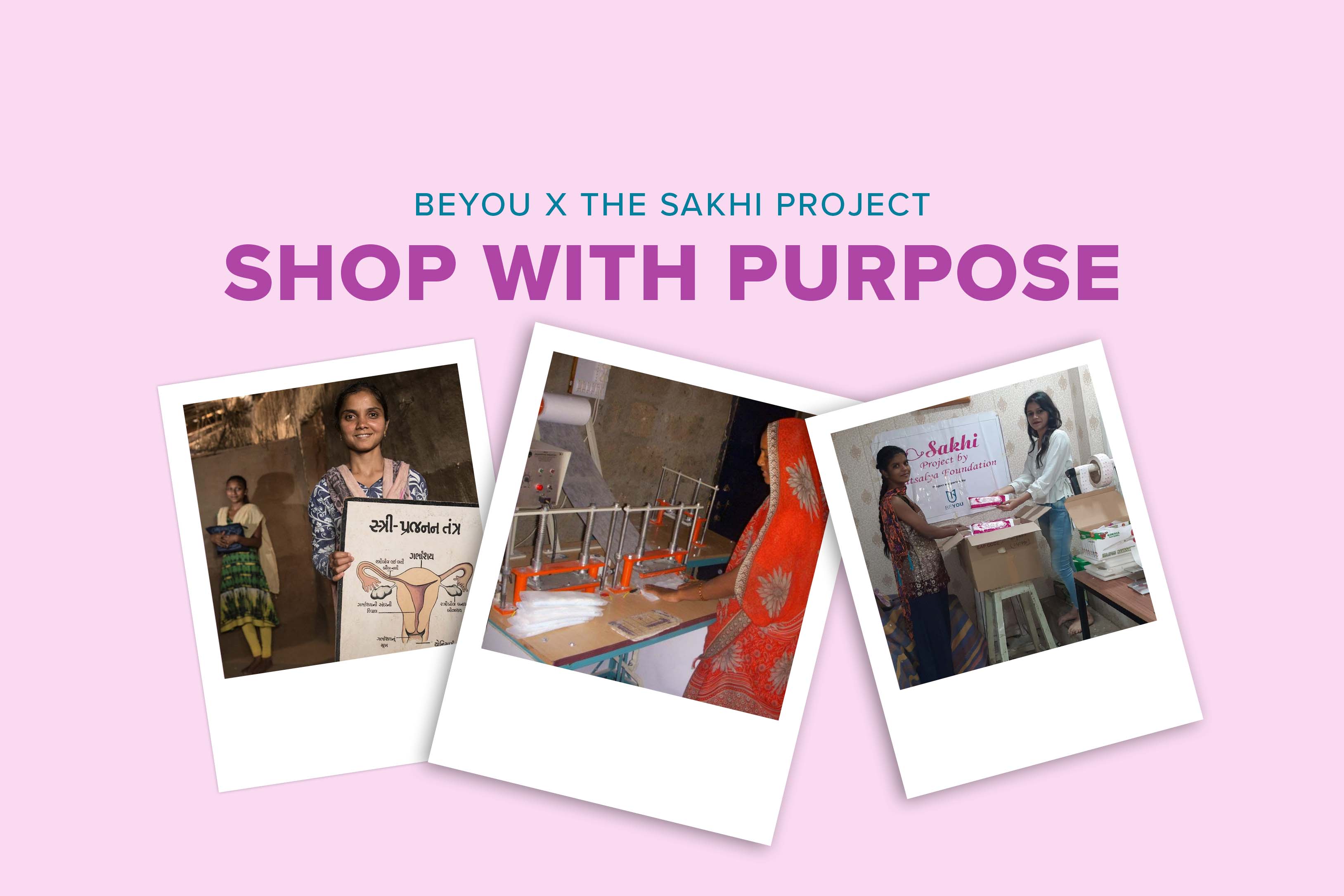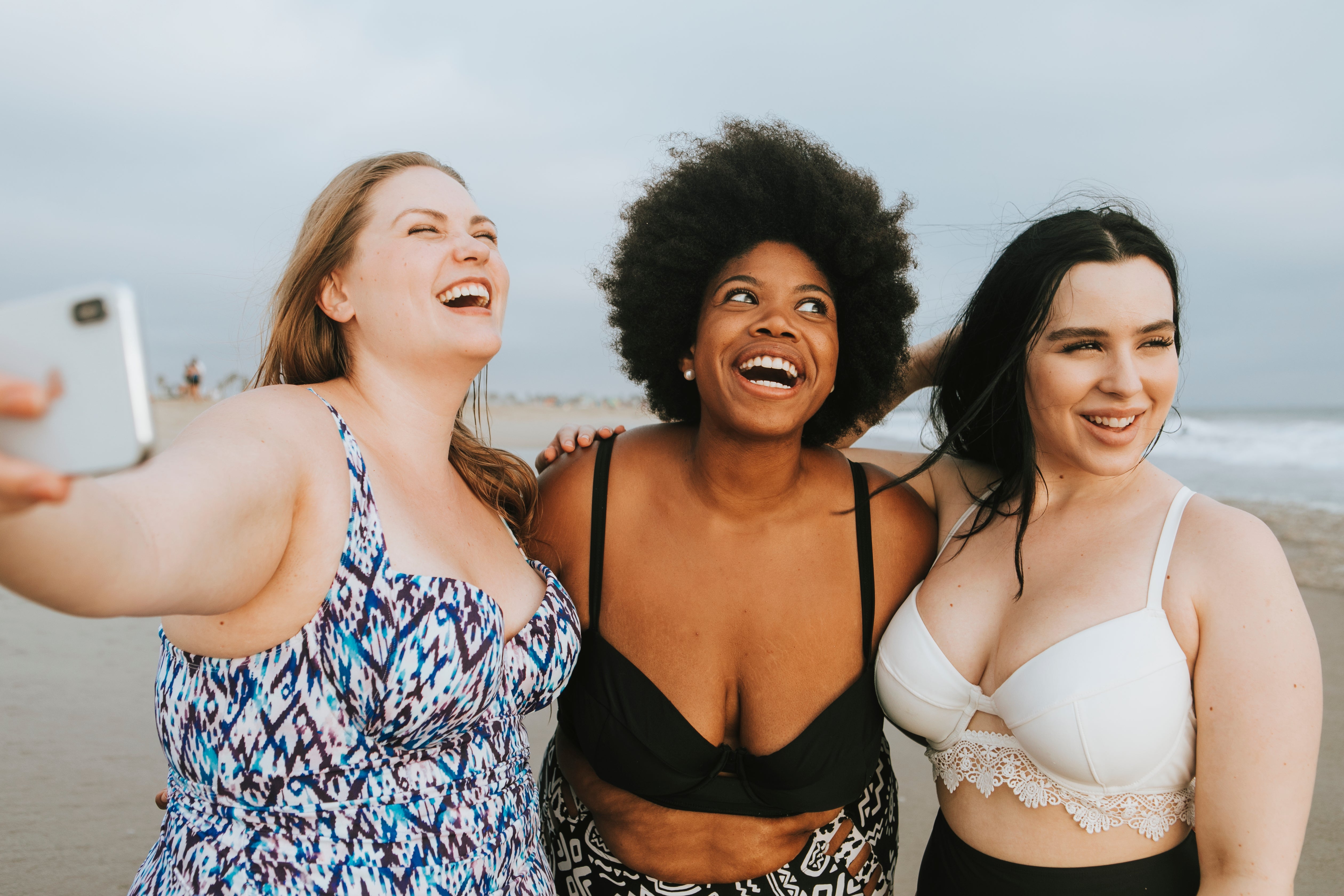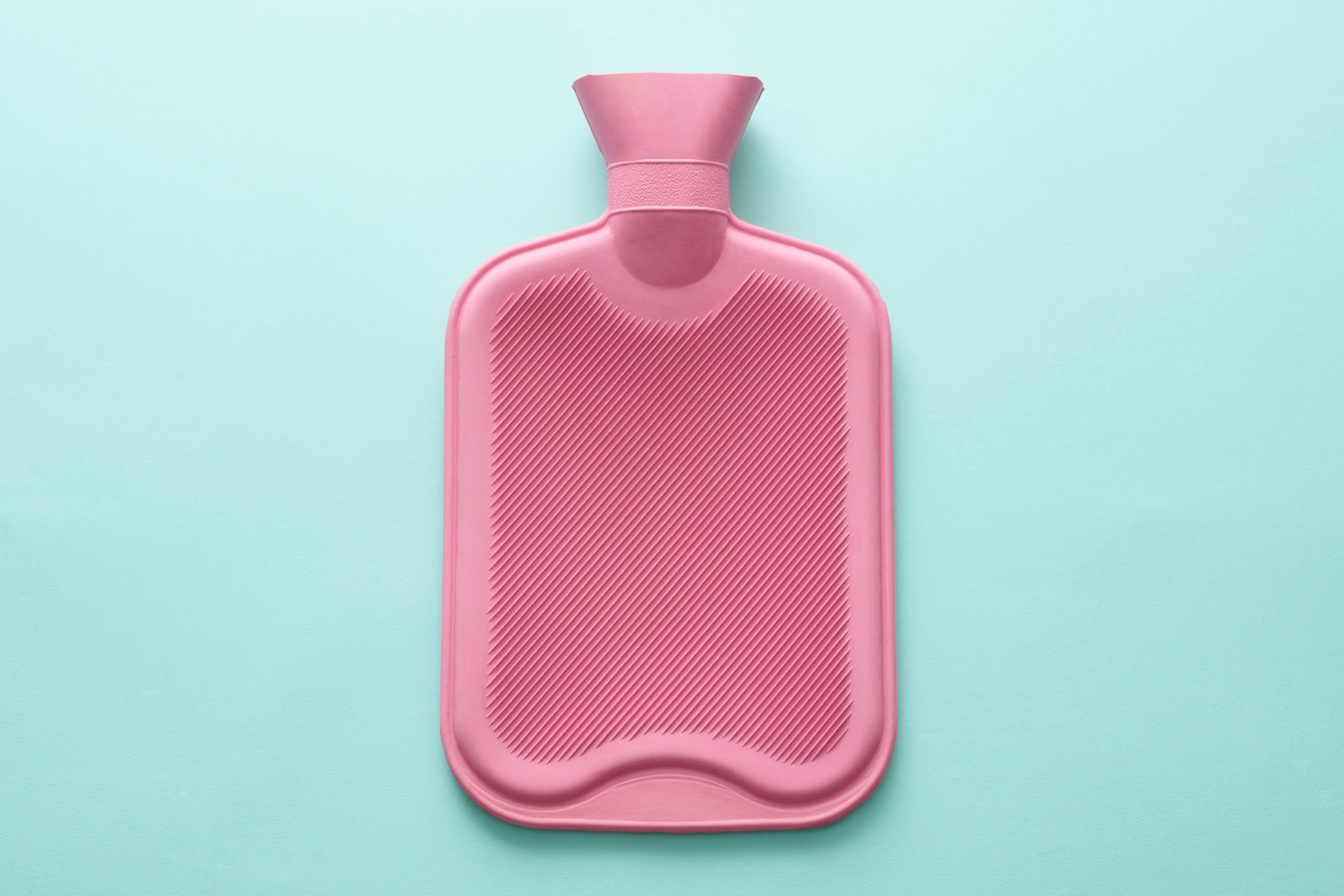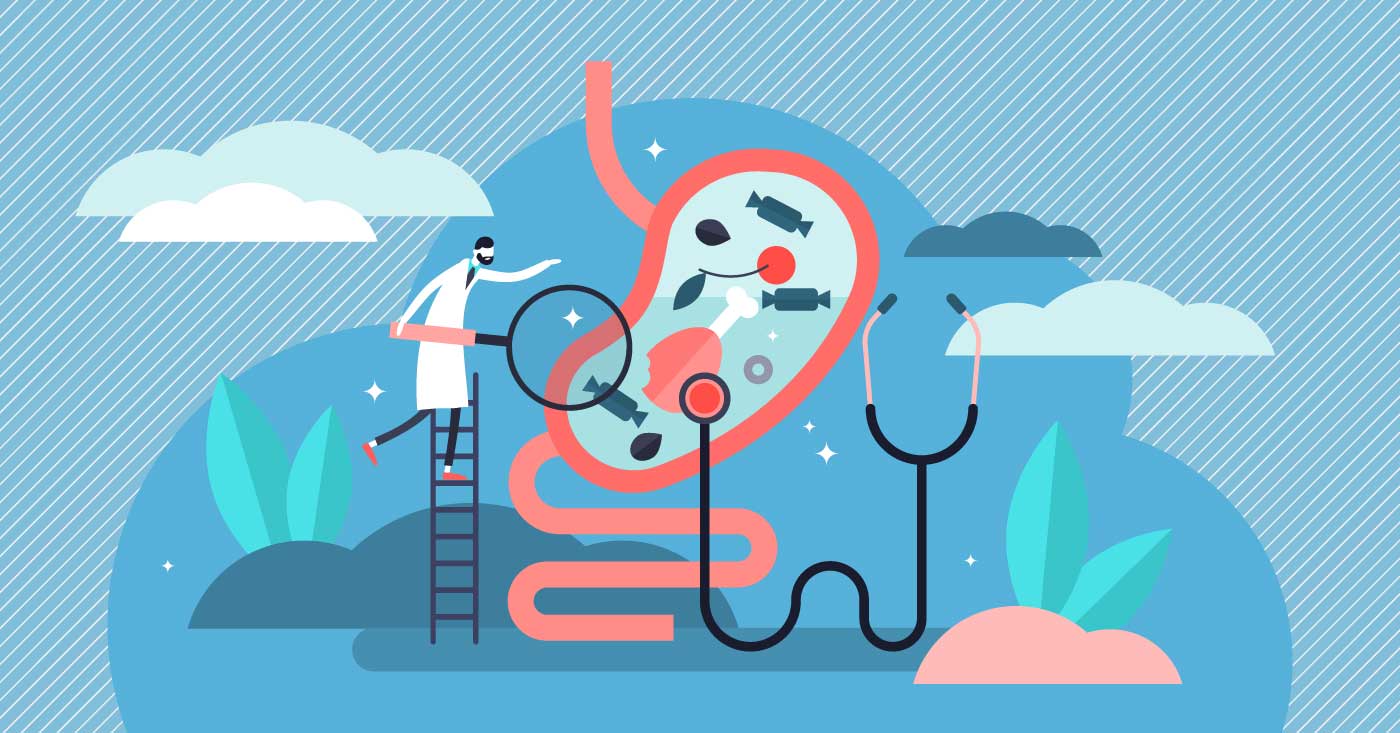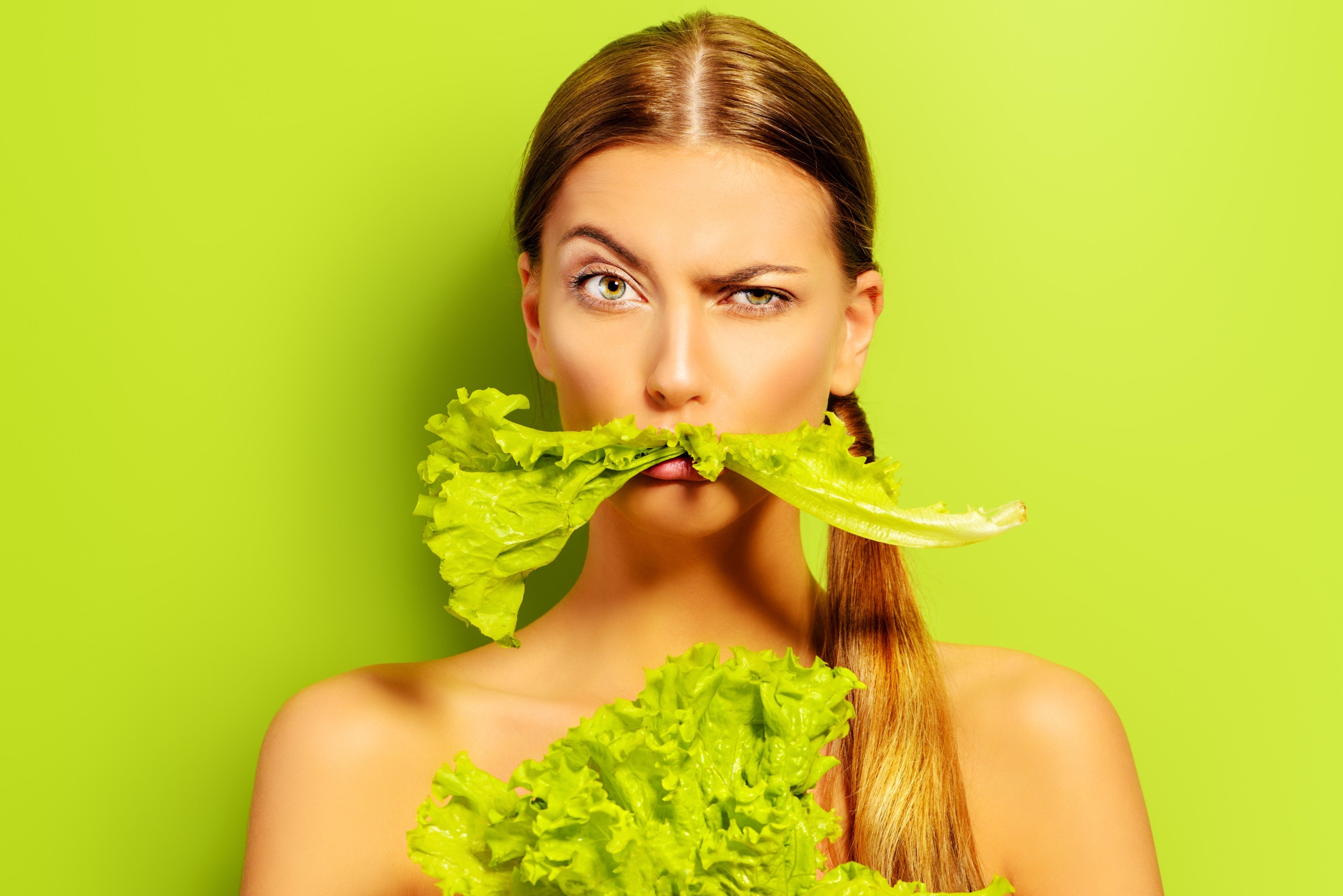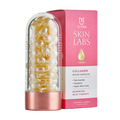Podcast Diaries: The Flow Down Episode 4
Apr. 01, 2020 By BeYou
Why we love it:
We are true foodies at BeYou HQ and we enjoy nothing more than indulging in our favourite comfort food during our time of the month. We always wonder why we crave specific foods at certain phases in our cycle. Or why we're stupidly hungry one day but don't want to eat the next? In this episode of The Flow Down Jess & Stephanie go into detail about the different phases of the menstrual cycle and why exactly we get cravings.
We're sure you'll love this episode just as much as we do so make sure to give it a lesson below and subscribe to The Flow Down on your favourite podcast app.
Listen & Learn:
The Transcript:
Welcome to episode four of The Flow Down.
A podcast all about periods. I'm Stefanie.
And I'm Jess. On today's show, we'll hear from a listener who has a question about her period.
And we'll do our very best to answer it. Don't go anywhere.
Okay Stef. So today is a really exciting day.
So exciting.
We are going to address our very first listener question.
This is so exciting, Jess. I used to spend more time than I'd even want to admit Googling questions about my period. So it feels so good to be creating this space together where women can get answers to their questions.
Especially when we realize that so many of our questions overlap, or that we are wondering about the same things. I think as women we have a lot more shared experiences than we realize.
Totally.
We're so lucky to have you, Stef, our own resident health coach here on The Flow Down, to talk us through some of the trickier health parts of the questions.
I really am so lucky. This is my jam. I love getting to share what I've learned with other women. Yeah, really, it's my pleasure.
Well then let's get to it. Shall we?
Let's do it.
So our question comes from Lisa, she's a listener in Oakland, California, and the question has to do with a pesky PMS symptom. Let's go ahead and play it.
Hi. So the question that I'm coming to you with today is about cravings. Every month before my period, I not only have cravings for sweets, which comes about a few days before my period, and then I'm also, on top of that, a lot hungrier than usual. I wanted to know your thoughts about that. I would love any feedback. Is this normal? Does this happen because of hormones? Is there something I should or should not be doing? Do I cave into the cravings? I'd love to hear your input. Thank you.
Lisa? Yeah.
Oh yes. I hear you. I really love this question, and especially right now, I'm about to get my period in two days, and I am really experiencing a sweet tooth myself.
Oh yeah.
I actually picked up some chocolate and I have been craving pizza and bagels and super carb-y things. So this question really hits for me.
Chocolate, pizza and bagels? I'm not about to get my period, but those still sound pretty good to me.
I'm guessing then, given that this is something that I experience and also Lisa, I'm just going to take a wild guess, Stef, and say that this is not the first time that you've ever heard this question.
Definitely not. Lisa, you are not alone. I hear this question all the time actually.
And I think it goes back, too, to something that we've discussed before, including actually on our first episode, this idea that we expect to kind of be able to feel the same every single day of the month, no matter where we are in our cycle, and, as part of that, that we'll be able to sort of just always eat the same things, that we'll always have the same levels of hunger, and this and that. So when we don't, we're like, "Hey, wait, what's going on?" But that's just not true, right, Stef? It's normal that we feel different throughout the month.
So normal. So normal. Absolutely, Jess. That's actually where I want to start. I want to start by illustrating that point. I want to give a brief overview of the menstrual cycle so that we can all see how our hormones change throughout the month in our bodies. I find it can be really useful to understand the menstrual cycle in this way. So how does that sound, Jess?
That sounds fantastic, Stef. I love this stuff and I love the way you share it, so I can't wait for everybody to hear.
Aw, thanks. Well, one thing before we dive in, Lisa, I am assuming that you're not on hormonal birth control, but if I'm wrong, please, please, I invite you to reach back out. Okay, and I'm mentioning that because when we're on hormonal birth control, our bodies do not follow the same cycle that we're about to talk about.
Okay. So without further ado, here we go with a menstrual cycle 101.
The menstrual cycle is this incredible process that our body goes through each month in order to prepare for a possible pregnancy. There are four main hormones, really, that we have to thank for this process. Four main hormones that are in charge of the menstrual cycle.
Okay, what are they?
Follicle-stimulating hormone, luteinising hormone, estrogen and progesterone, and it's follicle-stimulating hormone, also called FSH, that kicks off the cycle around the time your period starts. What happens is that the pituitary gland, a gland that's connected to your brain, secretes FSH and that FSH sends a message right down to your ovaries and tells about 15 to 20 eggs to start growing.
Now, each of those eggs is wrapped up in a layer of cells called a follicle, and that follicle produces estrogen. So as the eggs continue to grow, the level of estrogen in your body rises, and then at some point, usually around 10 days later, in a typical cycle, estrogen reaches its threshold, which triggers your pituitary gland to release luteinising hormone or LH.
That LH makes its way to your ovaries and tells them to release an egg from the biggest follicle. Usually one egg, possibly two, rarely more, is released by one of your ovaries, and that's called ovulation.
So from the brain to the ovaries. That is so cool.
So cool. Yeah, hormones are pretty incredible.
Okay. So let me just recap to sort of make sure that I've got this down. The time your period starts, follicles begin to grow in your ovaries, and that causes levels of estrogen to go up.
Exactly.
Estrogen eventually reaches its threshold and then that cues ovulation. Is that right?
Yes, Jess. Perfect. Thank you.
Okay, so that's the first half of the menstrual cycle, called the follicular phase, which, I personally love saying the word follicular, I think it's really fun, and so that's going on from the start of your period through ovulation, and that's about two weeks.
Exactly. Yep. So now let's talk about the second half of your cycle, which would be ovulation through to the start of your period.
Okay.
So after ovulation, the other eggs and their follicles, the smaller eggs, they disintegrate. But the follicle from the largest egg stays around, and it's called the corpus luteum, and it secretes the hormone progesterone. So now progesterone, a hormone which, in the first half of the cycle, is low and stable, starts to rise, and progesterone does a few things related to our cycle. First, it stops any other eggs from being produced for the time being. Second, it helps to build up the uterine lining so that if conception were to happen, that fertilised egg can implant itself and be nourished by the uterus.
Then third, it also causes some physical changes in your body, like notable physical changes mainly to your body temperature to your cervical fluid, which a lot of us probably know as discharge, and then to the cervix itself. Now we're talking periods here, so assuming the egg is not fertilised, the corpus luteum will stay around for about 12 to 16 days in an average cycle, and then it'll die and you'll shed your uterine lining, which is the bleeding you see, or your period.
Oh my gosh. That is incredible.
So incredible, right? So now what I want to do is relate all of that, right, what's happening hormonally in our body back to hunger and cravings.
Yeah, because I want to know why all of those things make me want to just eat hamburgers and doughnuts.
Wait, you are so PMSing right now.
Yeah. Can you tell, Stef?
There are a few things. First, as we just talked about, progesterone rises in the second half of the cycle, and what progesterone does is speeds up our metabolism. That, in turn, makes our body temperature rise slightly. Our body temperature rises a half a degree during that second half of our cycle, and some of us might be familiar with that because we track our cycles or because we use an app, and the app has this place to put in body temperature.
Well, that's why, because our body temperature changes depending on where we're at in our cycle. But that increase in metabolic rate also makes us hungrier.
Wow.
So we burn anywhere from 2.5% to 11% more calories during the luteal phase and studies actually show that.
So basically, it's completely and totally normal to be more hungry before our periods, like scientifically proven.
Completely. We actually take in more calories premenstrually, and we crave carbs too, which makes so much sense.
So much sense. It's just amazing to sort of be given permission like this is okay. I think in our culture we're sort of encouraged to prescribe to this idea that we shouldn't fluctuate and that we shouldn't want to be eating more and that we should try to maintain our physique or whatever it is or stick to our diet. It's just incredible to hear the science behind this, to know that actually that's not true. In doing so, you're actually kind of even fighting against your body.
Exactly. Like this is how my body works. Take that.
Yeah. I find it kind of helpful in those days, and it's an ongoing practice for me as well, because this is not a feeling that is completely comfortable for me, but I do tend to really just try to be kind to myself around that time of the month.
I love that.
Like this time that I'm in right now, and to just remind myself that it is normal, like a mantra, just kind of over and over. It's normal that you want to eat more. It's normal that you're craving these things. This also isn't going to last forever, and to just know that, give my body a little bit more of what it's wanting.
Exactly.
Give it the right things and then it will sort of help the process along.
Yeah. This is what my body needs right now. Totally. That is it, Jess. I love it. I love it. And then also, because of those higher progesterone levels during the second half of our cycle, we tend to have higher levels of blood sugar. Progesterone makes us a little bit more insulin resistant, and higher levels of blood sugar can actually make us feel hungrier and have cravings.
Okay.
And then also specific to cravings, right before and at the start of our period, all of our cycle hormones dip, including estrogen, including progesterone, and that dip in hormones has been shown to impact our brain chemistry. It lowers things like serotonin, GABA, and dopamine. These are neurotransmitters that keep us feeling happy and calm, and lower levels of those neurotransmitters can cause cravings, especially cravings for starchy foods since carbohydrates are needed to produce those neurotransmitters.
So that hormone dip at the end, hunger and cravings, but then that also some of those other maybe more emotional symptoms that we feel, that's because of that as well?
Mm-hmm (affirmative).
Okay. So let me just do another recap to be sure I've got this.
Great.
So during the second half of our cycle, our metabolism speeds up and that obviously makes us hungrier.
Right.
It's also harder to break down sugar, which also makes us hungrier and have cravings.
Yeah.
And our serotonin levels drop, so we want to reach for sugar and carbs to kind of fill the void.
Exactly.
Absolutely fascinating. So Stef, you've given us an overview of the menstrual cycle hormones and how they affect our hunger and our cravings throughout the month. Let's just take a quick break and then when we get back, we're going to talk about my favourite part of this whole puzzle, which are the suggestions for what we should eat to sort of help the body along during this time. We'll be right back.
So Stef, we have now established that it's pretty damn normal to need a bit more calories around this time of the month, and that we are probably also going to be wanting to eat carbs. Help us. How can we manage this? How can we eat in a way that supports our body right before our period?
Yeah. Great. So I think what we want to be striving for is to be able to acknowledge and be okay with the fact that we're going to be a little bit hungrier, and we're probably going to want sweets and then ideally to plan for it. The keyword there is ideally, right? Because there are going to be times when we end up eating something that we don't necessarily feel good about, and that's okay. But as much as possible, having good foods on hand to satisfy our hunger and satisfy or even calm our cravings, it's good practice.
I cannot express what a difference planning makes for me. If I have nothing in my fridge or my cabinets when my period's coming, more than likely I'm going to just end up grabbing whatever.
Absolutely, me too.
But if I can plan ahead even just a little bit, just look at my calendar and know that my period's coming the following week, and then make a little bit of an extra effort to stock up a week in advance, it's just a given that I'm going to feel so much better, and that's a way that I feel like I've been able to shift my habits and it's made an incredible difference for me.
Yeah, me too. For sure. I definitely used to have so many more moments of just eating, whatever thing. When I was in grad school, I used to pass by this gourmet shop on the way home from class, and I can't even tell you how many times I stopped for this peanut butter cheesecake. It was ridiculous. Amazing. Really, thanks in part to planning, in part, because there were other important changes that I made, I hardly ever give in to those temptations anymore. I mean, I don't live next to that gourmet shop now, but still, there are plenty of temptations and yeah, having something on hand goes a long way. Something I love.
I think another key is having options, right? I know there's not just one or two foods you should have around, there's like a whole array that are helpful. So I think that's what we're going to get into now a little bit, right?
Yes. So let's talk about a few types of foods you want to emphasize in your diet in the week or weeks before your period, given what's happening in your body hormonally. These are not meant to be the only foods that you're eating. So the first category of foods is root vegetables. Sweet potatoes, carrots, beets, butternut squash, acorn squash. They're sweet, so we're kind of preempting the sweet craving, and then they're also slow digesting carbohydrates. So they take our body longer to digest and keep us satisfied.
Getting those on our plate at each meal or at most meals is helpful. So Jess, you are super thoughtful about what you eat. Truthfully, I'm always tempted by what you're making. How do you prepare your root vegetables? Tell us.
There's a few ways. If I have lots of time, I might make a soup, like a butternut squash soup, but that sometimes takes a little bit more effort than other methods. To be honest, I think my favorite way to cook root vegetables is just to roast them. Just take the sweet potato or the squash, cut it up into small pieces, like little chunks, and be careful because sometimes they're kind of hard to cut, so watch your fingers. Toss them with olive oil and some salt and pepper, and just lay them down on a baking dish and just bake that baby in the oven for 30 minutes or so. I like to check and make sure, sort of stick a fork in it and make sure that it goes right through, that the tops of the veggies are browned. So yummy and so easy.
Yeah, that sounds so good. They're so pretty too. If you add in beets, the colors are incredible, and then the flavor, it's just... it's really amazing how delicious these foods can be.
Completely agree. I love mixing them. Yep.
Yeah, yeah. I'm all for keeping it simple, honestly. A lot of times, I just poke a few holes in my sweet potatoes and in my beets, and then I wrap them up in foil and bake them for like 45 minutes, and they come out and they're really creamy. The sweet potatoes are really creamy on the inside and the beets are delicious and sweet. Then I just sprinkle them with... Depends, if I'm in the mood, I'll do butter and cinnamon, or I'll do olive oil and salt and pepper and turmeric. So good.
Yum. That sounds so good. So we got our root veggies. What other food stuff do you recommend?
Yeah, well I also can't say enough good things about leafy greens, which I'm sure you knew it was coming, Jess, but spinach, kale, Swiss chard, collard greens or arugula, right. All those green leafy vegetables, they are really rich in nutrients that can be helpful, again, for the cravings, for PMS, things like vitamin Bs, magnesium, calcium. So getting plenty of those in is also really important.
Yep. I know you love your greens, Stef.
I do.
And I definitely love greens too. There's such a variety of things that you can do with them, sort of depending on the amount of time and energy that you have, and you can find tons of cool ideas and recipes online to sort of snazz up your greens. But a really, really simple way that I love to eat kale specifically is to make kale chips. I'm planning on doing this actually later today, and it's yet again just this really sort of simple idea. Just shred up your kale and put it in a big bowl, and then pour a little bit of olive oil on it and you can actually use your hands to kind of get the olive oil all really blended into the kale.
That's the trick.
And then add some salt and pepper, and I love to sprinkle with nutritional yeast. Then again, just put all the pieces of kale down on a baking pan, bake it up for 15, 20 minutes till it's crispy, and there you go. You've got these really yummy, crunchy, salty kale chips, and you're getting your greens in.
I love this because you've got it right here, all in the oven in two pans. You've got your roasted root vegetables going, then you can pop in your kale and it's like half of your dinner is made right there, and a whole bunch of veggies. That's so, so good.
Yeah, and it feels indulgent like these foods are actually really yummy.
Yeah. Yeah. That's it, right there. You've got to love it. You've got to love it. Yeah. I use my pressure cooker, which is sort of lame, but I use my pressure cooker a lot for leafy green vegetables just because it's one pot. I could do a bunch of stuff in this one pot. So a pressure cooker is basically just like steaming your vegetables. I'll put in some broccoli and then I'll put in a bunch of leafy greens, and then I'll just take the easy way and sprinkle them with some lemon juice and olive oil and salt and pepper, and it's sort of the quickest way.
Amazing.
Yeah, and then to the point that we were talking about, Jess, planning ahead, also planning to have some nutrient-dense blood sugar friendly treat on hand. I call these healthy indulgences, so they're foods that you really enjoy, that are as much as possible made with real ingredients. They have some nutritional value to them and they're not going to lead to that blood sugar crash. Right, different than something like a piece of chocolate cake.
For me, my favourite is having these chocolate Brazil nut truffles that I make on hand, and so nine times out of 10 I'm turning to those, and they're Brazil nuts, cacao, coconut oil, honey and some orange zest just blended up, ground up and then turned into truffles.
Oh, yum.
But you know, it doesn't mean that you need to be cooking something. You could also totally just have some good quality dark chocolate on hand, like 80% or higher. Ideally a brand without soy lecithin. For a while, my favourite brand has been Theo Chocolate, but even more recently I got into Divine Chocolate. They have a mission to support women, so I all around love their ingredients, love what they stand for.
I love that stuff. Especially being able to know that this week is coming when you are probably going to have these cravings, and then just knowing that you have these treats around. It's just such a simple way to do something really nice for yourself, and to be able to, like you said, to indulge, and then on the chocolate note, to make just a dark chocolate bar, even a tad more indulgent, sometimes I'll just make a little mini chocolate sandwich.
So I'll just take two little squares of dark chocolate and stuff them with some peanut butter or some almond butter or whatever nut butter you have around, and then just eat it like a little morsel. It's so yummy.
So delicious. And clearly we're biased toward chocolate when we're talking about sweets here, and really that's for a reason because including chocolate in particular at this time of the month or more specifically cacao, which is what chocolate is made of, it makes sense. On the one hand, cacao has been shown to raise serotonin levels, and on the other hand, it's a good source of magnesium, and we want plenty of this nutrient because when we're deficient in it, it can lead again to those cravings that we're talking about.
So Stef, I guess what you're saying is the old trope about PMSing women needing chocolate is actually true, and there's no shame about it and we should not feel bad about this.
Totally.
Just ideally make sure that your chocolate is real cacao. Real chocolate.
Yeah, and in moderation, right? Some chocolate and plenty of veggies on the side.
Love it.
Those are a few recommendations to get you started, Lisa, or any of us. More than that, there is so much more we can talk about when it comes to hunger and cravings, things like what you're eating all month long, because what we eat all month long, what we do all month long impacts how we feel before and during our period. Also, things like nutritional deficiencies, sleep, stress and how you're feeling emotionally right now.
We really hope that this was helpful for you. We're also going to leave some notes about the foods and recipes we mentioned on our website, flowdownpod.com, so be sure to check there.
Just a reminder, I'm a health coach. I'm not a doctor. Trust your intuition. If you feel like there's something off in your body, bring it up to a doctor.
If you have a period question, we would love to consider it for a future episode. You can leave us a voicemail with your question at 929-456-FLOW.
If you enjoyed this episode, leave us a review on iTunes. By doing so, you help us reach more women with our message.
Our theme song is Crimson Wave performed by Taco Cat, courtesy of Hardly Art Records.
On our next episode, Jess interviews Lara Freidenfelds, a historian who tells us all about the modern history of periods in the United States.
See you then.
Bye.
Bye.
Shownotes:
When a listener asks us for advice on how to handle a voracious appetite and sugar cravings before her period, we roll up our sleeves. Stef gives us the sex ed we never had and explains how our hormones change throughout the month. Then we talk about what to eat to help tame the cravings. And we share some of our favourite pre-period treats.
Resources + Links
Chocolate orange truffles on Stefanie’s blog. Note: you can swap brazil nuts for other nuts or seeds, like walnuts, almonds or sunflower or hemp seeds, too.
